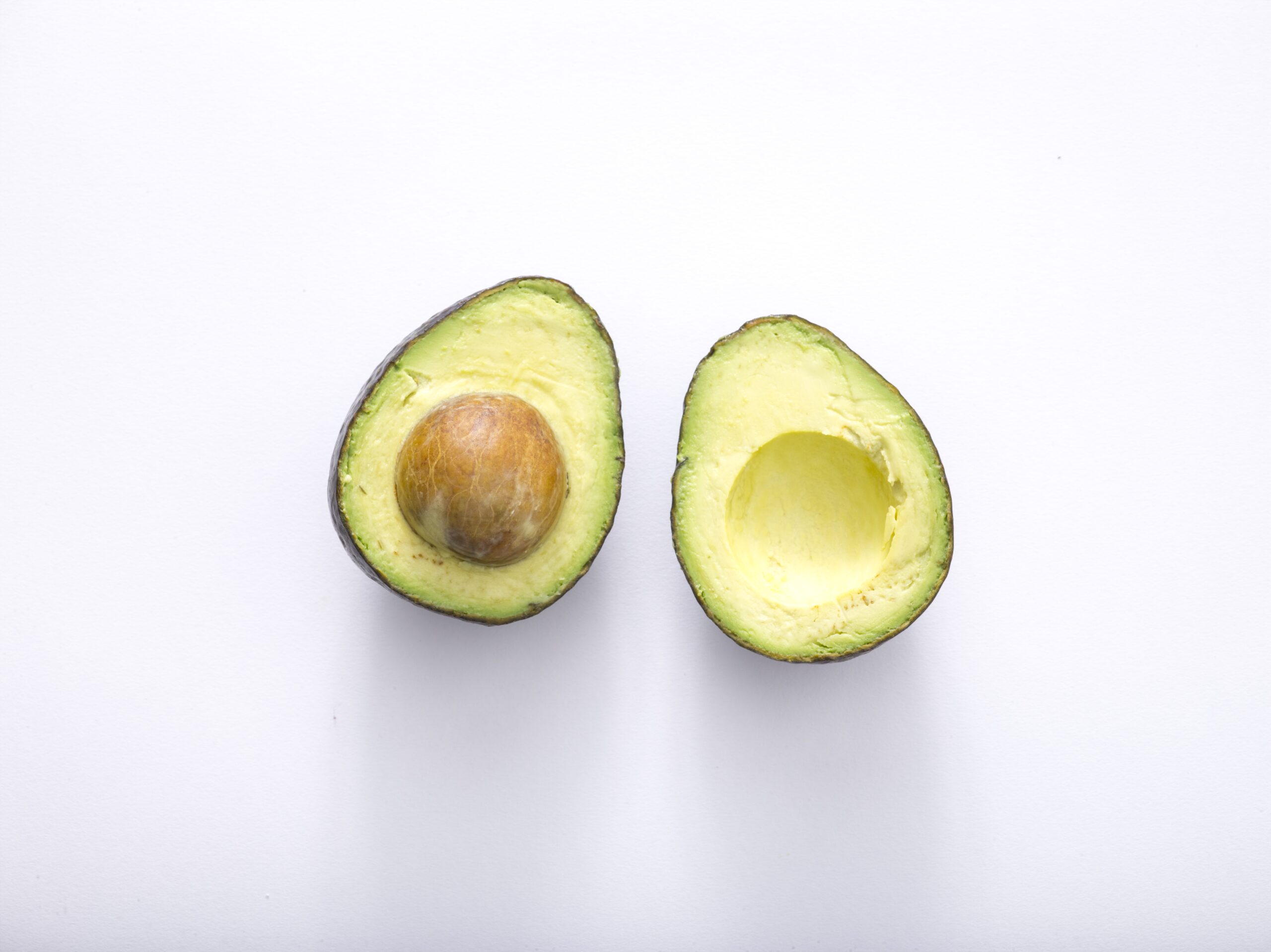Benefits of Avocado During Pregnancy: Ensuring a healthy pregnancy diet is crucial in providing the necessary nutrients for both the mother and the growing baby. Avocado, with its creamy texture and versatile flavor, should not be overlooked. This delicious fruit not only offers a multitude of benefits but also aids in promoting healthy fetal development by providing essential vitamins and minerals. Incorporating avocados into your pregnancy diet can have numerous positive effects on both mother and baby.

Nutritional Benefits of Avocado During Pregnancy
High in Folate
Avocado emerges as a nutritional powerhouse, particularly during pregnancy, offering a wealth of benefits. One of its noteworthy advantages lies in its abundance of folate, or folic acid, which is essential for the optimal development of the baby’s neural tube. This neural tube eventually gives rise to the brain and spinal cord, and ensuring sufficient folate intake during the early stages of pregnancy significantly reduces the risk of neural tube defects. By incorporating avocado into your diet, you can enjoy a natural and delightful way to meet your daily folate requirements.
Rich in Fiber
Fiber plays a vital role in maintaining a healthy digestive system, and avocado is an excellent source of dietary fiber. During pregnancy, the body undergoes numerous changes, including hormonal fluctuations and increased blood volume, which can lead to constipation. Including avocado in your diet can help regulate bowel movements and prevent constipation. The fiber in avocados also aids in maintaining stable blood sugar levels, keeping both you and your baby healthy.
Good Source of Healthy Fats
Avocado is known for its high-fat content, but fear not, these are healthy fats that your body needs during pregnancy. The monounsaturated fats present in avocados have been linked to promoting healthy fetal development and supporting brain growth. These fats are also beneficial for your cardiovascular health and can reduce the risk of heart diseases. Including avocados in your pregnancy diet can provide the optimal balance of healthy fats that you and your baby need.
Packed with Vitamins and Minerals
Avocado is packed with a variety of essential vitamins and minerals that are crucial for both you and your baby’s health. It is a rich source of vitamins C, E, K, and B-6. These vitamins support a healthy immune system, aid in the production of red blood cells, and contribute to the proper development of your baby’s organs. Avocado also provides minerals like potassium, magnesium, and copper, which are essential for maintaining electrolyte balance, supporting bone health, and promoting optimal brain function.
Promotes Healthy Fetal Development
Essential Nutrients for Brain Development
The development of your baby’s brain is a top priority during pregnancy, and avocado can play a significant role in promoting healthy brain development. Avocado is rich in omega-3 fatty acids, which are essential for the growth and development of the fetal brain. These fatty acids are building blocks for the brain and help in the formation of neural connections. Including avocado in your diet can provide your growing baby with the vital nutrients necessary for optimal brain functioning.
Supports Bone and Teeth Formation
Avocado is not only beneficial for your baby’s brain but also for their bones and teeth. It is a good source of calcium, which plays a crucial role in supporting bone and teeth formation. As your baby’s skeletal system develops, the calcium from avocado can aid in the proper growth and strength of their bones. Additionally, avocado also contains vitamin K, which is important for blood clotting and maintaining healthy bones.
Aids in Healthy Skin and Hair Growth
Pregnancy can bring about changes in your skin and hair, and avocado can help alleviate some of these concerns. Avocado is rich in antioxidants, including vitamins C and E, which can contribute to healthy skin and hair growth. These vitamins help protect your skin from damage caused by free radicals and support collagen production, promoting skin elasticity and reducing the appearance of stretch marks. The healthy fats in avocado also nourish your hair from within, making it stronger and more lustrous.
Boosts Immune System
Maintaining a strong immune system is essential during pregnancy to protect both you and your baby from illnesses. Avocado can give your immune system a boost due to its high vitamin C content. Vitamin C is a powerful antioxidant that strengthens the immune system by neutralizing free radicals and promoting the production of white blood cells. Including avocado in your diet can help ward off common colds and infections and keep you healthy throughout your pregnancy.

Heart Health Benefits
Provides Healthy Fats
Taking care of your heart health is crucial during pregnancy, and avocados can be a valuable ally in this regard. Avocado is a rich source of monounsaturated fats, which are considered heart-healthy fats. These fats can help lower bad cholesterol levels, reduce the risk of heart diseases, and improve overall cardiovascular health. Including avocados in your pregnancy diet can contribute to maintaining a healthy heart and circulatory system, benefiting both you and your baby.
Lowers Risk of High Blood Pressure
High blood pressure is a common concern during pregnancy and can pose risks to both you and your baby. Avocado consumption has been associated with lower blood pressure levels, making it an excellent addition to a blood pressure-friendly diet. The potassium content in avocados helps regulate blood pressure by counteracting the negative effects of sodium and promoting blood vessel dilation. By adding avocados to your meals, you can support healthy blood pressure levels and reduce the risk of complications related to high blood pressure during pregnancy.
Reduces Bad Cholesterol Levels
Maintaining healthy cholesterol levels is vital during pregnancy, and avocados can assist in achieving this goal. The monounsaturated fats in avocados have been shown to increase levels of good cholesterol (HDL) while reducing levels of bad cholesterol (LDL). This balance is crucial for mitigating the risk of heart diseases. By including avocados in your diet, you can improve your cholesterol profile and reduce the likelihood of developing cholesterol-related complications during pregnancy.
Rich in Potassium
Potassium is an essential mineral for maintaining a healthy heart and regulating blood pressure. Avocado is a fantastic source of potassium, with higher levels than most fruits. By including avocados in your diet, you can ensure an adequate intake of potassium, which can help maintain optimal heart function and prevent deficiencies. Adequate potassium levels during pregnancy promote healthy kidney function, muscle contraction, and overall cardiovascular health.
Digestive Health Benefits
High in Fiber
Fiber is essential for maintaining a healthy digestive system, and avocados are an abundant source of dietary fiber. During pregnancy, the digestive system tends to slow down, leading to constipation and discomfort. Including avocados in your diet can help combat this issue. The fiber in avocados adds bulk to your stool, making it easier to pass, and promotes regular bowel movements. By incorporating avocados into your meals, you can support digestive health and prevent common gastrointestinal issues during pregnancy.
Relieves Constipation
Constipation is a common problem during pregnancy, and avocados can be a natural remedy. The high fiber content in avocados aids in softening the stool and promoting regular bowel movements, relieving constipation. Additionally, avocados also contain natural oils that lubricate the intestinal walls, further facilitating smooth digestion. By eating avocados regularly, you can alleviate constipation and maintain optimal digestive health throughout your pregnancy.
Supports Healthy Gut Microbiome
Maintaining a healthy gut microbiome is essential for overall well-being, and avocados can contribute to achieving this balance. Avocado contains prebiotics, which are nourishment for the beneficial bacteria in your gut. These prebiotics provide a favorable environment for the growth and proliferation of good bacteria, aiding in digestion and nutrient absorption. By incorporating avocados into your diet, you can support the health of your gut microbiome and improve overall digestive function.

Weight Management Benefits
Helps in Controlling Weight Gain
Maintaining a healthy weight during pregnancy is important for both you and your baby’s well-being. Avocado can be a valuable addition to a balanced and nutritious diet that promotes healthy weight management. The high fiber and healthy fat content in avocados help increase feelings of fullness and satiety, reducing unnecessary snacking and overeating. By including avocados in your meals, you can better control your weight gain during pregnancy and ensure a healthy balance of nutrients for you and your baby.
Provides Satiety
Feeling satisfied and avoiding constant hunger pangs is key to managing your weight during pregnancy. Avocado, with its rich and creamy texture, can provide a sense of fullness and satiety that helps curb cravings and unnecessary snacking. The combination of healthy fats and fiber in avocados slows down the digestion process, keeping you feeling fuller for longer periods. By incorporating avocados into your meals and snacks, you can stay satisfied and avoid excessive calorie consumption.
Boosts Metabolism
Maintaining a healthy metabolism is important for managing weight during pregnancy, and avocados can contribute to an efficient metabolic rate. Avocado is rich in B-vitamins, including vitamin B-6, which plays a vital role in metabolism regulation. These vitamins assist in breaking down carbohydrates, proteins, and fats, ensuring efficient energy utilization. By including avocados in your diet, you can support a healthy metabolism and enhance your body’s ability to effectively utilize nutrients.
Gestational Diabetes Management
Regulates Blood Sugar Levels
Gestational diabetes is a condition that affects pregnant women, and managing blood sugar levels becomes crucial in these cases. Avocado can be a beneficial addition to a diabetic-friendly meal plan due to its low glycemic index and high fiber content. The healthy fats in avocados slow down the absorption of sugars, preventing sudden spikes in blood sugar levels. By incorporating avocados into your diet, you can help regulate blood sugar levels and manage gestational diabetes effectively.
Improves Insulin Sensitivity
Insulin sensitivity is key to managing gestational diabetes, and avocados may offer some assistance in improving this condition. Avocado is rich in monounsaturated fats, which have been associated with improved insulin sensitivity. By incorporating avocados into your diet, you can help your body utilize insulin more effectively and maintain stable blood sugar levels. It is important to note that avocados should be consumed as part of a well-balanced diet and in consultation with your healthcare provider if you have gestational diabetes.

Reduces Risk of Birth Defects
High in Folate
Folate, or folic acid, is a crucial nutrient during pregnancy, as it helps in the healthy development of the baby’s neural tube. Avocado is an excellent natural source of folate, making it a valuable addition to any pregnancy diet. Sufficient folate intake during the early stages of pregnancy significantly reduces the risk of neural tube defects, such as spina bifida. By including avocados in your meals, you can ensure that you and your baby receive an adequate supply of this essential nutrient for optimal development.
Protects Against Neural Tube Defects
Neural tube defects are serious birth defects that can affect the development of the brain and spinal cord. Avocado’s high folate content makes it a protective food against these defects. Folate plays a crucial role in the formation of the neural tube during early pregnancy. By incorporating avocados into your diet, you can provide your body with the necessary folate to support the healthy development of your baby and reduce the risk of neural tube defects.
Alleviates Pregnancy Symptoms
Reduces Nausea and Vomiting
Nausea and vomiting, commonly known as morning sickness, can be one of the challenging aspects of pregnancy. Avocado can play a role in alleviating these symptoms. The vitamin B-6 content of avocados has been shown to reduce nausea and vomiting during pregnancy. Additionally, the healthy fats and high fiber content can provide a steady release of energy and prevent blood sugar fluctuations that often contribute to morning sickness. By including avocados in your diet, you may experience relief from these uncomfortable symptoms.
Relieves Leg Cramps
Leg cramps are a common occurrence during pregnancy, often caused by changes in circulation and nutrient deficiencies. Avocado can be a beneficial addition to your pregnancy diet in combatting leg cramps. Avocado is rich in potassium and magnesium, minerals that are crucial for maintaining proper muscle function and preventing cramps. By incorporating avocados into your meals, you can ensure an adequate intake of these minerals and potentially reduce the frequency and severity of leg cramps.
Prevents Edema
Edema, or swelling, is a common symptom experienced by many pregnant women, especially in the later stages of pregnancy. Avocado can help alleviate edema due to its high potassium content. Potassium is essential for maintaining proper fluid balance in the body. By regulating fluid levels, avocados can potentially reduce swelling and prevent excessive fluid retention during pregnancy. Including avocados in your meals can be a refreshing and nutritious way to combat edema and promote overall comfort.

Enhances Nutrient Absorption
Increases Absorption of Fat-Soluble Vitamins
Avocado can enhance the absorption of fat-soluble vitamins, such as vitamin A, D, E, and K. These vitamins require the presence of fats for proper absorption into the body. Incorporating avocados, which contain healthy fats, into your meals can improve the bioavailability of these crucial vitamins. By doing so, you can optimize the utilization of these nutrients and support the healthy development of your baby, as well as maintain your overall health during pregnancy.
Boosts Iron Absorption
Iron is a vital mineral during pregnancy, as it supports the production of new blood cells and prevents anemia. Avocado can help boost iron absorption due to its high vitamin C content. Consuming vitamin C-rich foods along with iron-rich foods can enhance the body’s absorption of iron. Avocado’s vitamin C can facilitate the conversion of plant-based iron sources into a more easily absorbed form. By including avocados in your diet, you can support optimal iron absorption and prevent iron deficiency during pregnancy.
Contributes to Overall Maternal Well-being
Provides Antioxidants
Antioxidants play a crucial role in protecting the body against oxidative stress and reducing the risk of chronic diseases. Avocado is a rich source of antioxidants, such as vitamins C and E, which can contribute to overall maternal well-being. These antioxidants help neutralize harmful free radicals in the body, preventing cellular damage and reducing the risk of certain health conditions. By incorporating avocados into your meals, you can support your body’s antioxidant defense system and promote a healthy pregnancy.
Supports Hormonal Balance
Hormonal fluctuations are a natural part of pregnancy, and avocados can provide support for hormonal balance. Avocado contains healthy fats that are essential for hormone production and regulation. These fats serve as building blocks for various hormones, including those involved in maintaining a healthy pregnancy and preparing the body for childbirth. By including avocados in your diet, you can support healthy hormonal function and help maintain a stable balance throughout your pregnancy.
Boosts Energy Levels
Pregnancy can be physically demanding, and maintaining optimal energy levels is essential. Avocado can provide a natural energy boost due to its combination of healthy fats, fiber, and vitamins. The healthy fats in avocados provide a slow and steady release of energy, keeping you fueled throughout the day. The fiber content helps regulate blood sugar levels, preventing energy crashes. Avocado’s vitamins, such as B-vitamins, play a vital role in energy metabolism, supporting the body’s ability to produce and utilize energy efficiently. By including avocados in your meals, you can experience sustained energy levels and combat pregnancy fatigue.

Hi, I’m King Phils, a Dragon Fruit enthusiast and blogger. Welcome to my website, where I share everything I know and love about this amazing fruit.